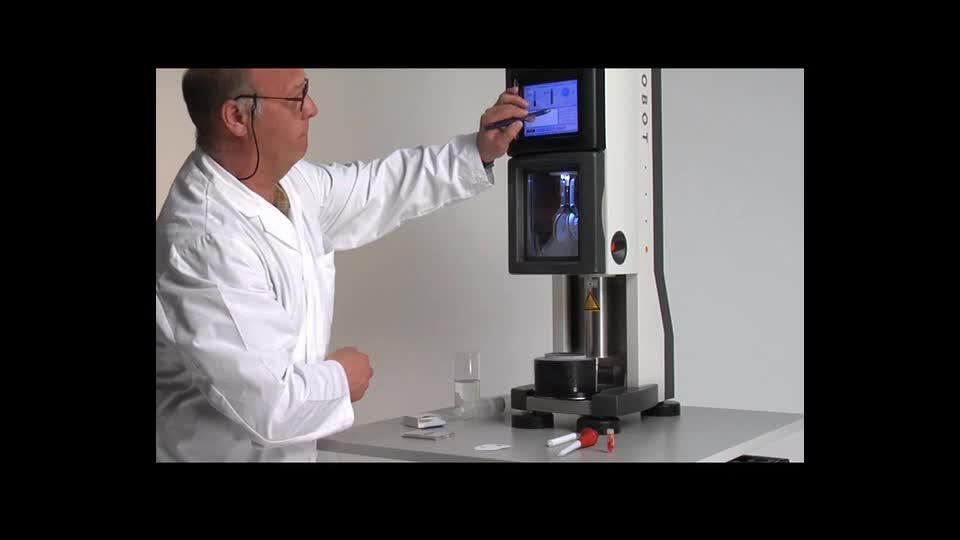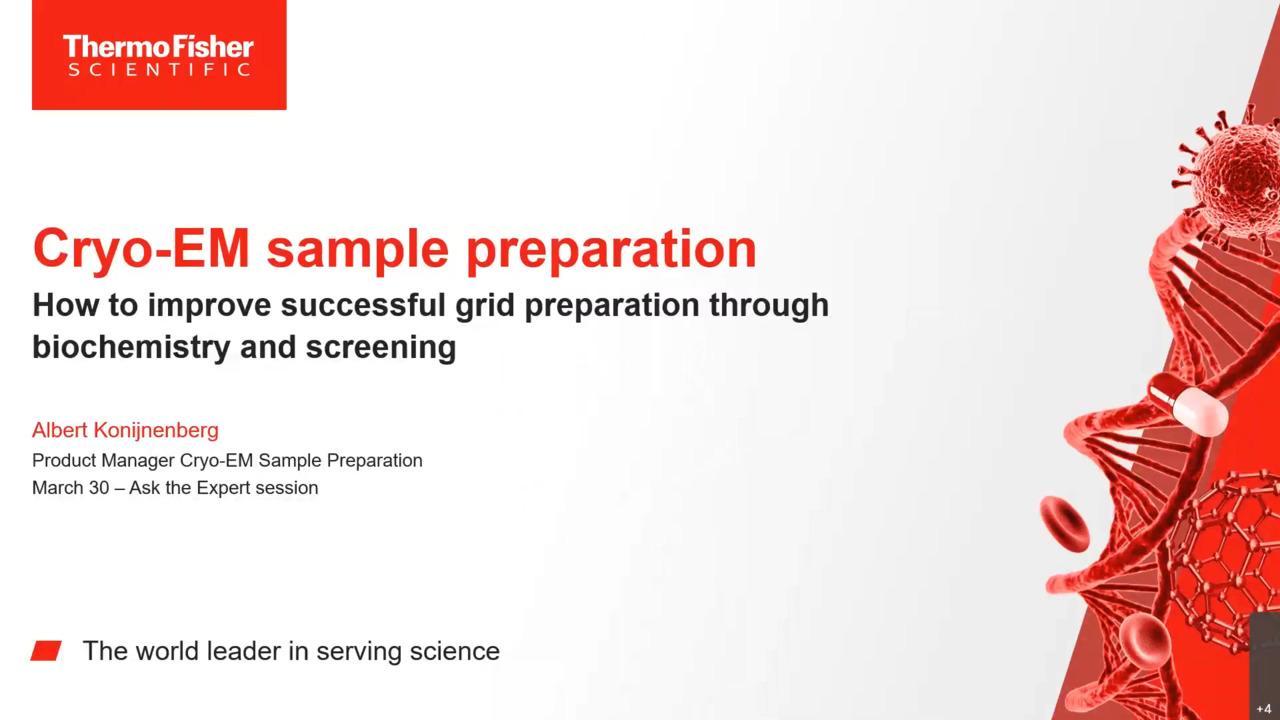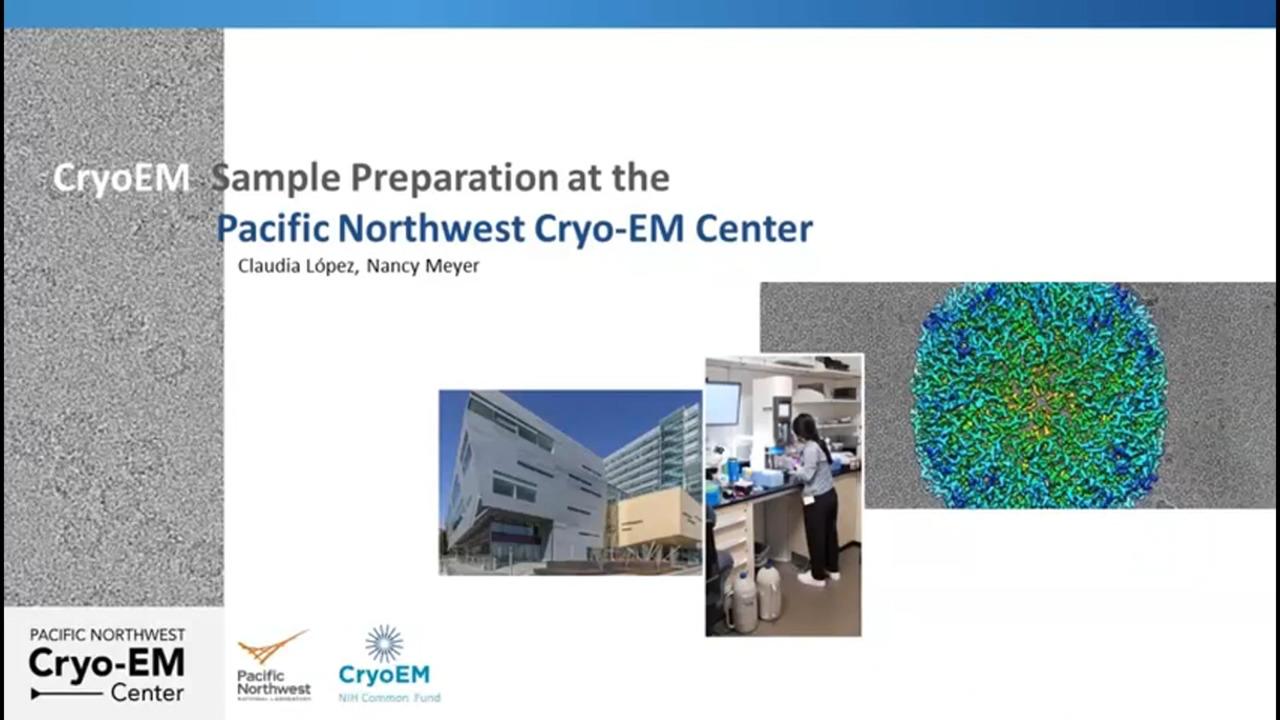Search Thermo Fisher Scientific

Vitrobot Mark IV System offers reproducible vitrification of biological samples
The Thermo Scientific Vitrobot Mark IV System offers semi-automated vitrification to provide fast, easy, and reproducible sample preparation for cryo-EM. It performs the cryo-fixation process at constant physical and mechanical conditions like temperature, relative humidity, blotting conditions, and freezing velocity. This ensures high-quality cryo-fixation results and a high sample preparation throughput prior to cryo-TEM observation.
The Vitrobot System offers great value to the demanding scientific areas of cell biology and molecular imaging. It is equally suitable for food, industrial, pharmaceutical, and nanotechnological applications - where the true colloidal structure of your analyte is critical.
Vitrobot Mark IV System features
The vitrification process
Highly automated vitrification process with enclosed process chamber:
- Automated shutter control allows smooth, instant injection of the sample grid into the coolant (liquid ethane or propane). A lift for the container brings the coolant close to the shutter to ensure optimal vitrification.
- Synchronous lowering of the coolant container and the grid holder keeps the grid submerged in the coolant and minimizes the risk of contamination prior to transfer ring the sample into a storage box or cryo holder.
- Coolant container with integrated anti-contamination ring.
- Grid transfer from the coolant towards a grid box in the liquid nitrogen environment is semi-automated.

Sample application
Vitrobot Mark IV System provides precise and flexible control of all critical parameters in the plunge-freezing process:
- Small sample volumes can be applied manually with a pipette through a small side port on the left and the right side of the climate chamber.
- Both application time and wait time (between application and blotting) are software controlled and can be set in the user interface.
- Precisely timed control of multiple sample applications, blotting actions, and vitrification enables time resolved analysis of interactions among separately applied components.
Vitrobot Mark IV System interface and instrument control
Easy and flexible user interface:
- Linux operating system
- Touch screen control and set-up
- Mouse and foot pedal controls also available
Vitrobot blotting device
- Excess fluid is removed from the grid by (repeated) blotting with filter paper on rotating foam pads.
- Number of blotting actions (max. 16 times for one grid) and duration of blotting are software controlled and can be set in the user interface.
- Longitudinal grid positioning (‘blot offset’) and wait time between blotting and vitrification (‘drain time’) are user definable.
Vitrobot Mark IV System applications
The Vitrobot Mark IV System is compatible with multiple sample types, such as proteins, bacteria, and cells to fulfill your multiple structural biology applications requirements.
How-to videos for operating the Vitrobot Mark IV System
Learn how to use the Vitrobot Mark IV System from preparing the system to vitrifying a sample with these step-by-step videos.
- System preparation
- System Anatomy
- Preparing for vitrification
- Cryo coolant preparation
- Vitrification
Tips and tricks for sample preparation on the Vitrobot System
Vitrobot Mark IV System technical specifications
| Weight | 31 kg |
| Dimensions | L/W/H: 413/260/890 mm |
Power supply |
|
| Operating parameters |
|
Vitrobot Mark IV System documents
Featured citations
Find relevant citations from peer-reviewed journals where specific research results were generated using the Vitrobot Mark IV System.
Cryo-EM grid optimization for membrane proteins
Kampjut D, Steiner J & Sazanov LA. Cryo-EM grid optimisation for membrane proteins. iScience : 102139 (2021).
https://doi.org/10.1016/j.isci.2021.102139
Structure deformation and curvature sensing of PIEZO1 in lipid membranes
Yang, X., Lin, C., Chen, X. et al. Structure deformation and curvature sensing of PIEZO1 in lipid membranes. Nature 604, 377–383 (2022).
https://doi.org/10.1038/s41586-022-04574-8
Integrative structure of a 10-megadalton eukaryotic pyruvate dehydrogenase complex from native cell extracts.
Kyrilis FL, Semchonok DA, Skalidis I, et al. Integrative structure of a 10-megadalton eukaryotic pyruvate dehydrogenase complex from native cell extracts. Cell Reports 34 (2021).
https://doi.org/10.1016/j.celrep.2021.108727
Dynamics of GLP-1R peptide agonist engagement are correlated with kinetics of G protein activation.
Deganutti, G., Liang, YL., Zhang, X. et al. Dynamics of GLP-1R peptide agonist engagement are correlated with kinetics of G protein activation. Nat Commun 13, 92 (2022).
https://doi.org/10.1038/s41467-021-27760-0
Structural basis of actin filament assembly and aging
Oosterheert, W., Klink, B.U., Belyy, A. et al. Structural basis of actin filament assembly and aging. Nature 611, 374–379 (2022).
For Research Use Only. Not for use in diagnostic procedures.




